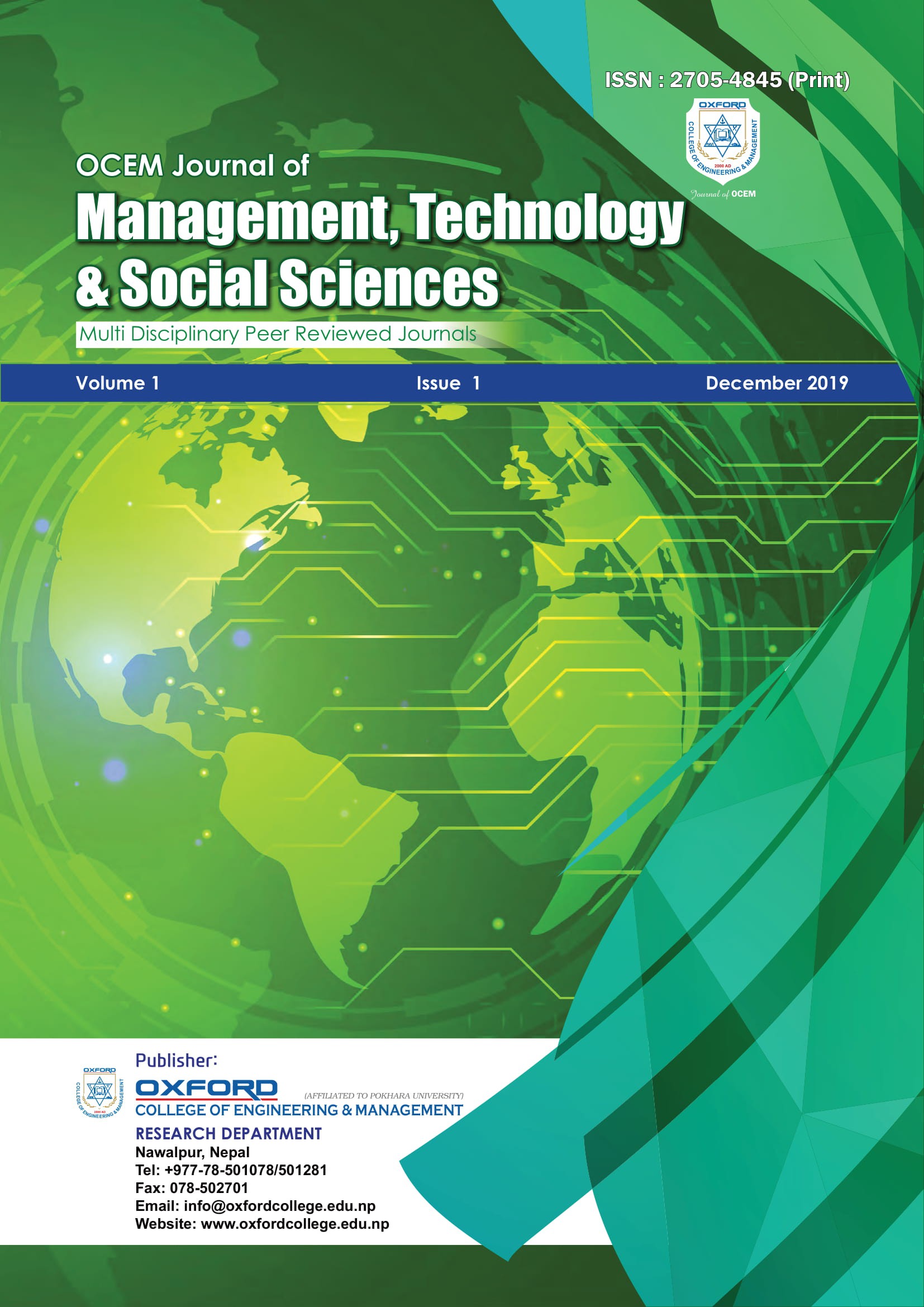
The Impact of Information Technology to Make Rational Strategic Decision Making in Educational Institutions in Nepal
The primary objective of this study was to examine the impact of information factors for the rational strategic decision making (RSDM) when information is accessed using technology. In educational institutions. The previous studies reveal that time content, form of information and technology were found influential factors for the appropriate rational strategic decision making. The quantitative method was applied along with the survey study was used as a research method to collect data where the administered survey structured questionnaire was used as a research instrument to collect data. In the first stage, fourteen private and 10 public colleges were selected purposively and then twenty four respondents were selected randomly from the twenty-four colleges. The results show that the proportion of male and female respondent was 79.20 % and 20.8 % respectively and the proportion of private and public college was 58.33 % and 41.66 % respectively. The results indicate that the values of the subscales were found lower than the average mean value signifying the less importance of information factors to make the RSDM. Additionally, the results also highlighted that there was an insignificant association between the value of information, the purity of information, the efficiency of information, the details of information, the quality of information, the advanced technology adopted human resources, the performance of information, the formats of information, the perfectness of the information and the role of information in RSDM (p > 0.05). The results further show that the mean score of the private college of the subscale ‘purity of the information’ was statistically significantly higher from that of the public college. Similarly, the mean score of the private college for the subscale quality of information was statistically significantly lower from that of the public college signifying that private college did not give more importance to quality of information for the impact of RSDM. The implication of this study will be beneficial for the college executives and principals to understand the role of information to make RSDM in educational institutions. The limitation of this research is very limited number of survey respondents which has affected the results of the Binary Logistic Regression Analysis.
Keywords: Information, rational strategic decision making, subscales, principal components, technology.
